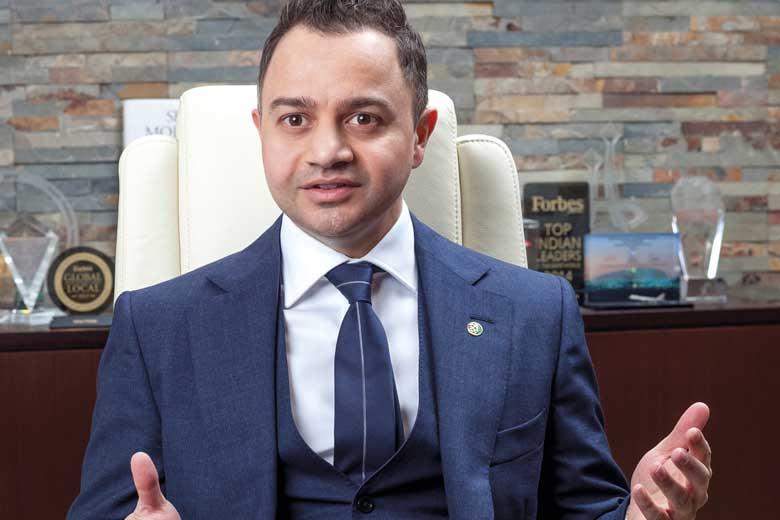

Dubai Islamic Banks Adnan Chilwan outlines four key areas the sector needs to focus on to achieve its full potential over the coming years
Despite being considered a relatively modern concept, the origin of Islamic finance is almost as old as the religion itself. Founded about 1,400 years ago, some of the most common Islamic finance tools, such as takaful (insurance) and sukuk (bonds), were in use long before conventional banking tools. The UAE was one of the first countries in the region to pioneer Islamic finance in modern banking, with the establishment of Dubai Islamic Bank (DIB) in 1975. Kuwait and other GCC economies soon followed suit.
Since then, Islamic financial services have grown exponentially, not only expanding outside the GCC and Malaysia, but also rapidly emerging as a global phenomenon. A milestone year for Islamic finance was 2014, which marked the first sovereign sukuk issuance by a non-Organisation of Islamic Cooperation country the UK.
Growing market
In 2017, the value of the Islamic finance industry is expected to reach $2.7 trillion and, according to analysts, it is forecast to grow to $3.4 trillion by the end of 2018.
Although, at present, the GCC along with Malaysia and Iran account for 80 per cent of the Islamic finance industrys assets, the sector has potential for further expansion, especially in countries such as Turkey and Indonesia, where penetration is relatively low.
Taking a closer look at regional trends playing out in the overall banking and finance sector in 2015-16, the growth has been rather slow paced. This can be attributed to sustained lower oil prices, sluggish economic growth and policy reforms.
Most GCC countries are expected to finance fiscal deficits through sukuk issuances
However, the outlook for Islamic finance is more buoyant in 2017 and beyond, led by significant opportunities in Islamic capital markets and increased focus on the development of Islamic economies in Dubai, Malaysia and even traditionally non-Muslim countries such as the UK. For instance, sukuk issuances are expected to rise in 2017 as sovereigns, banks and corporates in the Gulf try to close the financing gap and execute various diversification and transformation plans. Most GCC countries are expected to finance their fiscal deficits through sukuk issuances.
Banks have been possibly the most prolific players in the Islamic capital markets in recent times. DIB, for example, recently raised funds through a billion-dollar sukuk issuance, the largest Islamic bond issuance by a financial institution in the history of Islamic finance.
While all these positive indicators signal that the Islamic finance market will continue to grow, we must do more to ensure its sustainable development. We must look for ways to further improve and develop the sector so that it can quickly adjust and adapt to ongoing globalisation and dynamic market trends. In my opinion, Islamic finance institutions should focus on four core areas:
? Standardisation: With more involvement from multilateral lending institutions, the standardisation of legal structures and sharia-interpretation can be easily achieved. The UAE has made great strides in this area by establishing the Dubai Islamic Economic Development Centre and a Central Sharia Board to provide unified supervision and guidance for Islamic finance institutions, but more needs to be done to better standardise Islamic finance worldwide.
? Consolidation: The wider Islamic ecosystem, comprising regulators, governments, sharia boards, corporates and customers, need to work together to align on communication, reporting and regulation issues; this would enable the industry to further transform into a truly globalised sector.
? Education: Universities and research organisations could play a bigger role in providing training and knowledge to ensure students and financial advisers have a thorough understanding of all Islamic finance components. There are also several myths that need to be busted. One way this could be done is if Islamic finance institutions take an active role in raising awareness among prospective clientele through education and engagement. For instance, there is a misconception that Islamic finance is only for Muslims. In fact, its appeal extends to a more global audience who are intrigued by its intrinsic value. This has been proven by DIB, which has positioned itself as a leader in banking in the UAE, and not just in Islamic finance.
? Innovation: Some sharia-compliant institutions still do not fully embrace the importance of technological innovation in minimising operational costs and attracting more millennial consumers. Innovation will continue to be critical to accelerating growth. Expanding the portfolio of services and improving the quality of products helps increase their appeal to a wider range of customers.
If the above four areas of focus are closely addressed by Islamic finance institutions, I am confident the sector will achieve, if not exceed, its predictions for growth. And its adoption worldwide will no longer be considered just a probability, but a reality.
Adnan Chilwan is group CEO of Dubai Islamic Bank, the UAEs largest Islamic bank
You might also like...

Iraq signs deal to develop the Akkas gas field
25 April 2024

Emaar appoints beachfront project contractor
25 April 2024

Acwa Power signs $356m Barka extension
25 April 2024

AD Ports secures Angola port concession agreement
25 April 2024
A MEED Subscription...
Subscribe or upgrade your current MEED.com package to support your strategic planning with the MENA region’s best source of business information. Proceed to our online shop below to find out more about the features in each package.








